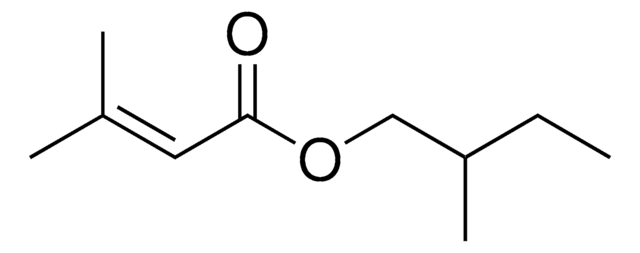W256102
cis-3-hexenal solution
50% in triacetin, stabilized
Sinónimos:
Disolución de (Z)-3-hexenal
About This Item
Halal
Kosher
Productos recomendados
biological source
synthetic
Quality Level
grade
Fragrance grade
Halal
Kosher
agency
follows IFRA guidelines
reg. compliance
EU Regulation 1223/2009
FDA 21 CFR 117
contains
α-tocopherol as stabilizer (synthetic)
concentration
50% in triacetin
refractive index
n20/D 1.44
bp
20 °C/0.2 mmHg
density
0.982 g/mL at 25 °C
application(s)
flavors and fragrances
documentation
see Safety & Documentation for available documents
food allergen
no known allergens
fragrance allergen
no known allergens
organoleptic
apple; fatty; green; fruity
storage temp.
2-8°C
SMILES string
CC\C=C/CC=O
InChI
1S/C6H10O/c1-2-3-4-5-6-7/h3-4,6H,2,5H2,1H3/b4-3-
InChI key
GXANMBISFKBPEX-ARJAWSKDSA-N
Categorías relacionadas
Application
Disclaimer
signalword
Warning
hcodes
Hazard Classifications
Eye Irrit. 2 - Flam. Liq. 3
Storage Class
3 - Flammable liquids
wgk_germany
WGK 3
flash_point_f
96.0 °F
flash_point_c
35.55 °C
ppe
Eyeshields, Faceshields, Gloves, type ABEK (EN14387) respirator filter
Elija entre una de las versiones más recientes:
¿Ya tiene este producto?
Encuentre la documentación para los productos que ha comprado recientemente en la Biblioteca de documentos.
Los clientes también vieron
Nuestro equipo de científicos tiene experiencia en todas las áreas de investigación: Ciencias de la vida, Ciencia de los materiales, Síntesis química, Cromatografía, Analítica y muchas otras.
Póngase en contacto con el Servicio técnico













